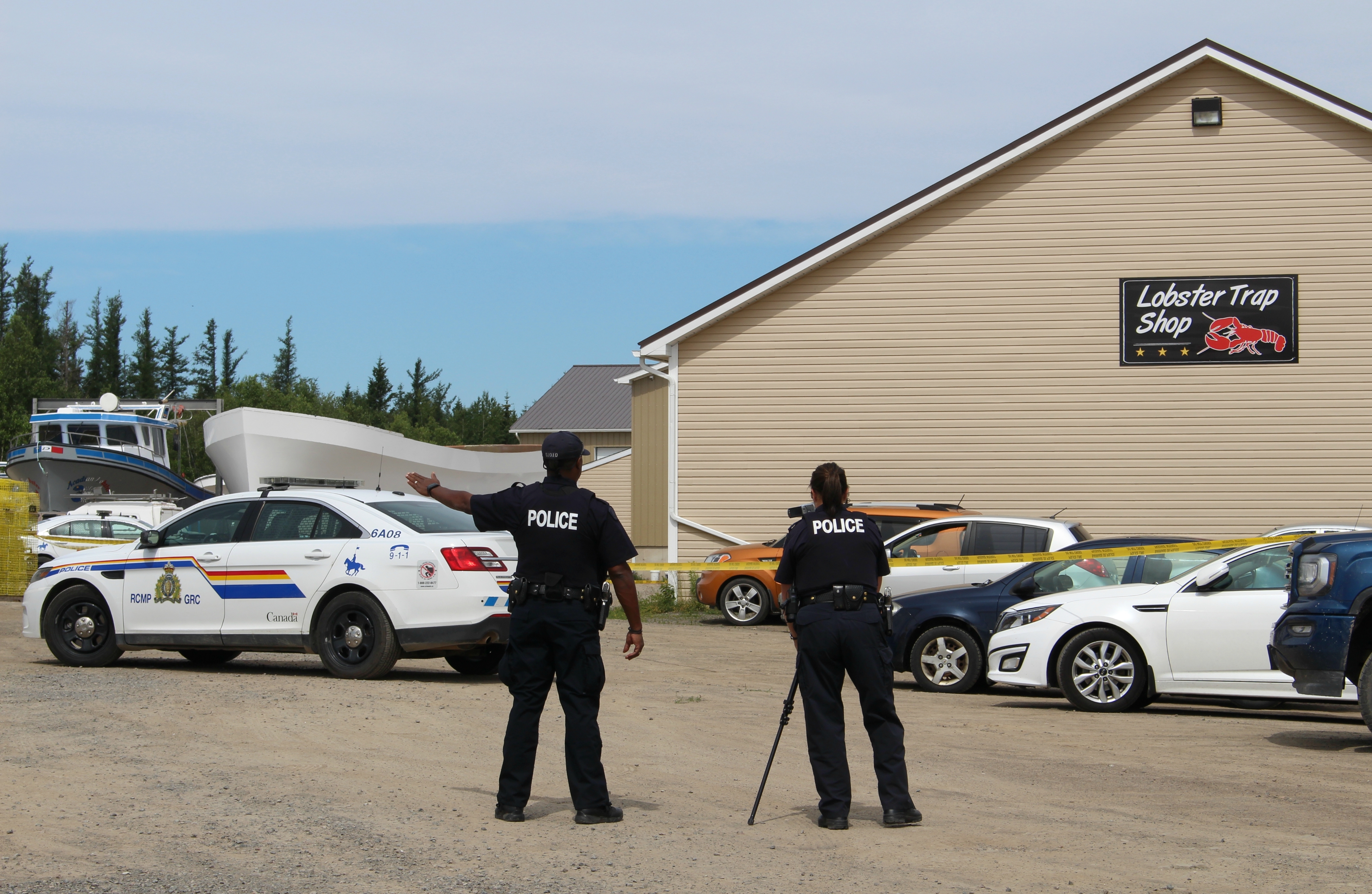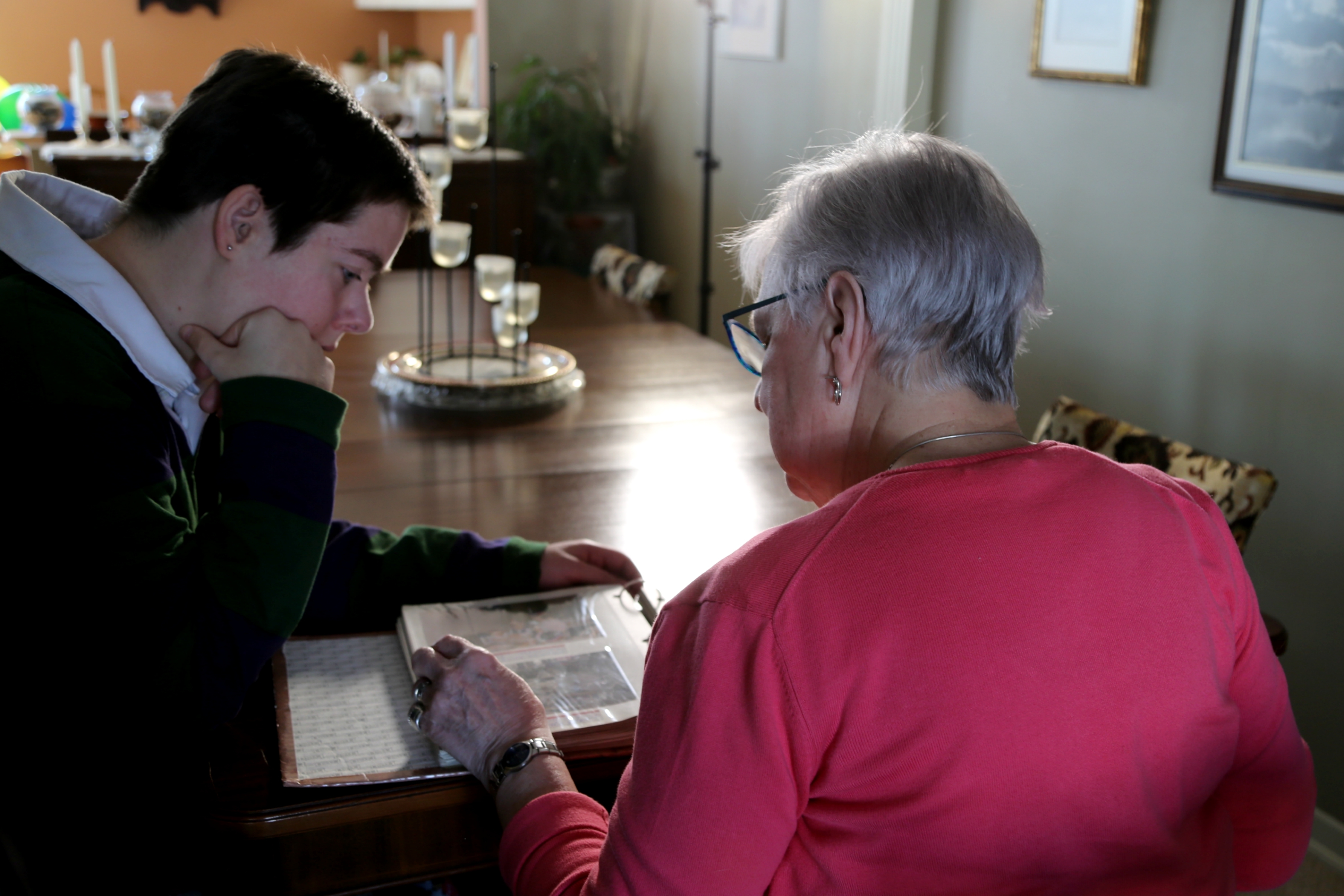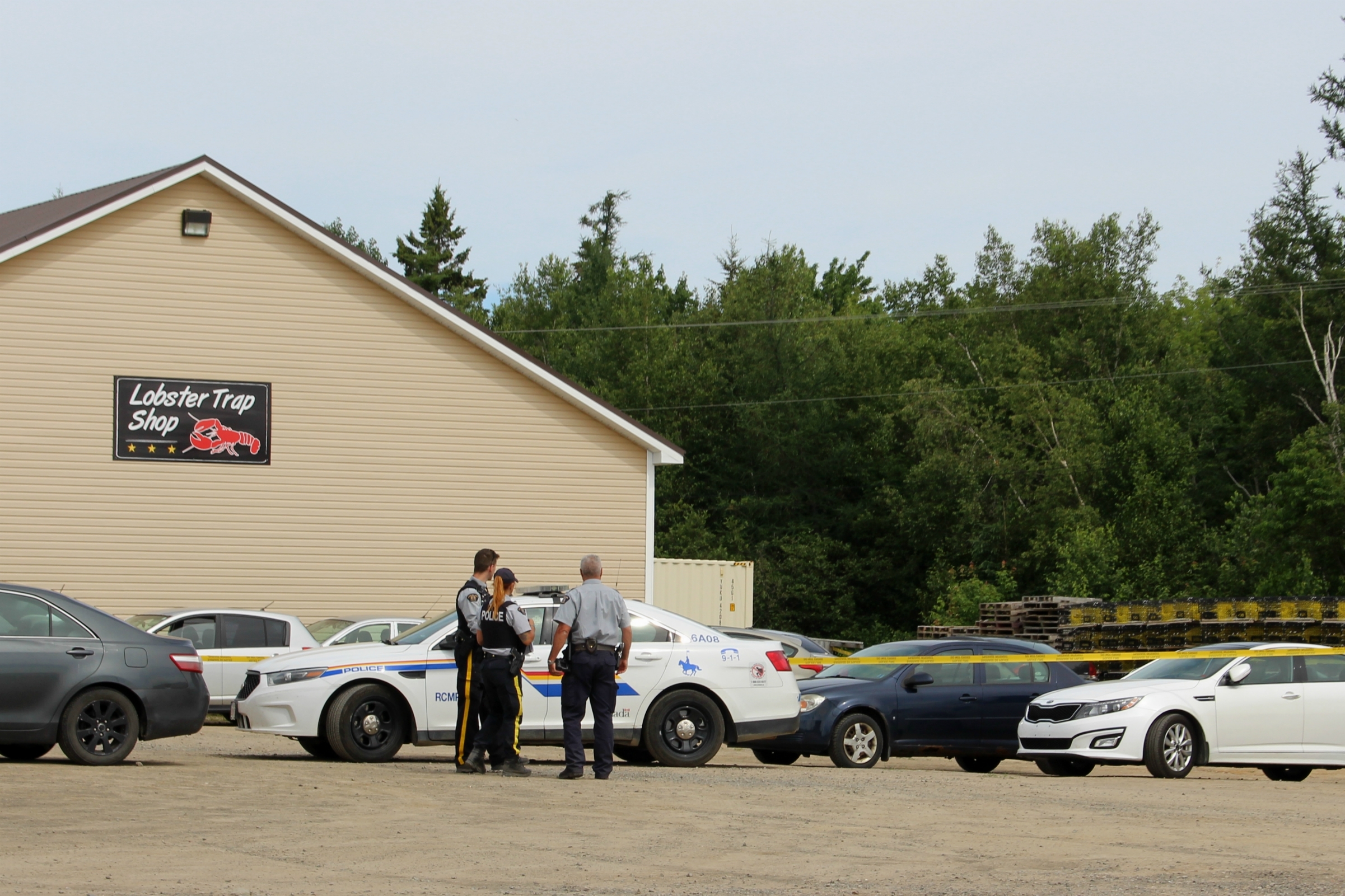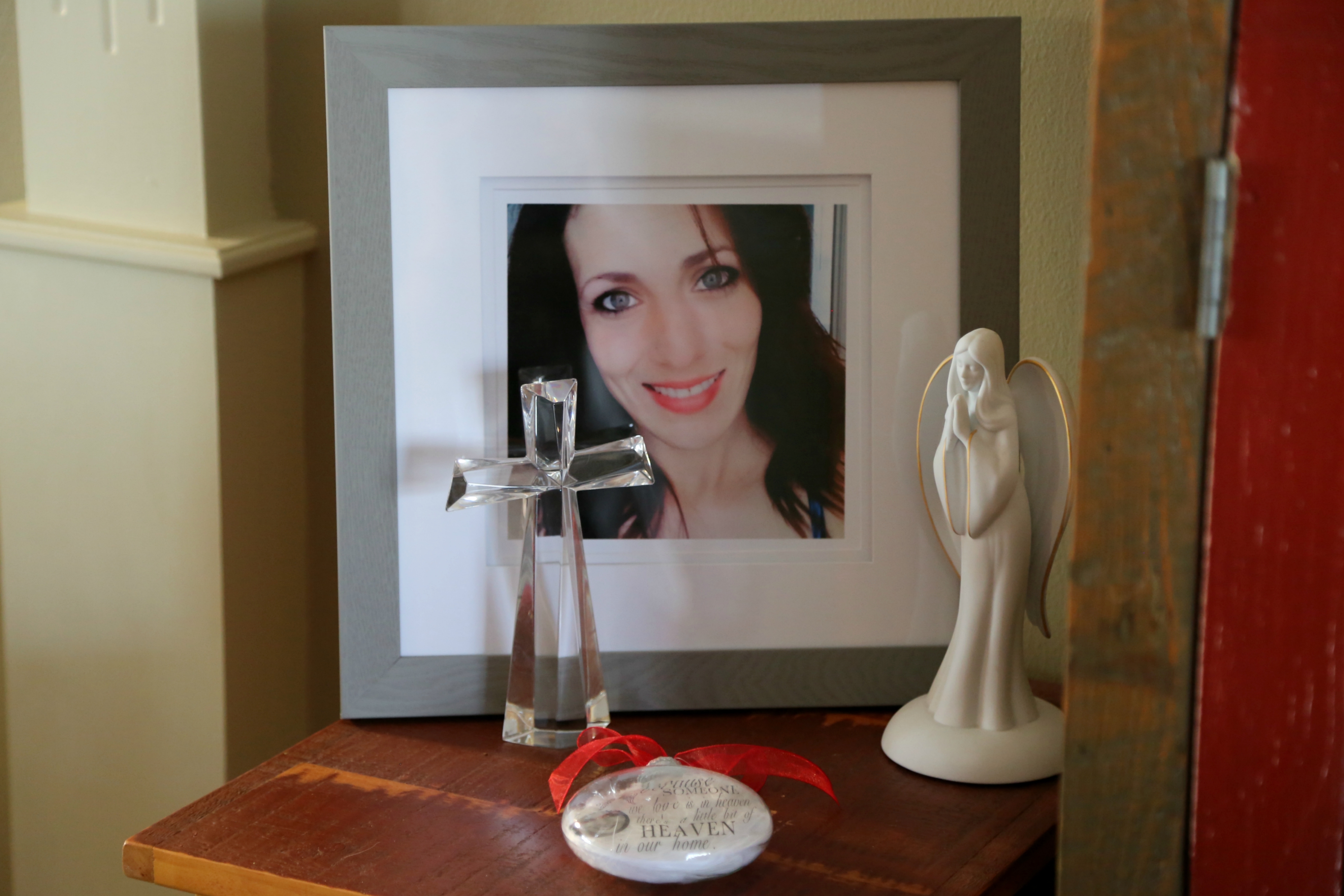March 9, 2020
This story is part of Stopping Domestic Violence, a CBC News series looking at the crisis of intimate partner violence in Canada and what can be done to end it.
Rose Marie Smith had a monthly appointment with her daughter, Lisa Graves-Smith.
Three and a half hours of driving separated mother and daughter, but they took turns calling each other every month to catch up.
Last July 25, it was the mother’s turn to call. She never got the chance. Another call came instead, one that would shatter her world.
Lisa was murdered, shot by a man she briefly dated before he killed himself at their workplace in Pointe-Sapin in eastern New Brunswick. She was 30.
“I don’t know if you ever get over that,” Smith said at an interview at her Halifax-area home.
To this day, the RCMP have told Smith little about what happened, leaving her to piece together the details on her own.
She knows her daughter was working in a room alone at DJ Marine around 7:30 a.m. She said RCMP told her Christian Poirier, a man “known to police,” killed her.

The coroner assured Smith that Lisa died instantly and likely wouldn’t have known what happened. Other details have come from co-workers and friends.
But for Lisa’s family, questions remain. The biggest one of all: Could it have been prevented?
“I think we have to know what preceded this,” Smith said.
As part of a project that examines how to prevent intimate partner violence — which Statistics Canada defines as “violence committed within an intimate relationship,” including current and former dating partners — CBC has pieced together the events leading up to that tragic July morning.
Growing up in Nova Scotia, Lisa was the most curious of Smith’s 15 children. She loved going on school trips and caring for her siblings, developing a motherly personality even as a little girl.
As an adult, Lisa was drawn to New Brunswick, where she was born. She would become a mother of three children and her love for them drove her to overcome struggles that came her way.

“She was very self-motivated and was very altruistic in the fact that her children came first in her life,” her mother said.
It drove her to take on new and challenging jobs, from lobster fishing to home care. Finally, she landed a job she loved, performing technical work at DJ Marine, a marine supply store.
While working there, Lisa had driven to work with Poirier a couple of times when her car broke down, Smith learned after her daughter’s death.
Co-workers and friends told her that Lisa had gone out with Poirier for a little while, but she decided she didn’t want to pursue a relationship with him.
“Lisa was a very strong young woman," Smith said. "When she said no, she certainly meant no.”
Smith doesn’t know if that’s what led to her daughter’s death.
“She said she didn’t feel like she was in any harm’s way."
Co-workers told Smith that Poirier hadn’t been at work for several days. Friends were concerned enough to suggest Lisa call police.
“She said she didn’t feel like she was in any harm’s way,” Smith said.
Early in the morning on July 25, Poirier went to work at DJ Marine and greeted co-workers as he carried his morning coffee. Lisa was at work early.
Poirier wasn’t supposed to have a gun that day. He had a history of violence and was banned from possessing firearms, according to public records.
But he did have a gun.
Police will only say that a 30-year-old woman was shot and killed by a 42-year-old man, who then took his own life. And that the two knew each other.
A mother of three was killed at her Pointe-Sapin workplace by a man with a history of violence. CBC uncovers what happened that day.
Investigation closed
Police haven’t publicly described what happened that day as intimate partner violence, a crime that disproportionately affects women and their families across Canada.
Four weeks after Lisa was killed, RCMP closed their investigation. There was no one to charge and nothing else to say, according to police.
The New Brunswick RCMP’s spokesperson, Cpl. Jullie Rogers-Marsh, said it would be “inappropriate” to discuss specifics about the crime because charges haven’t been laid. She cited privacy legislation.
“It’s not that we don’t want to, it’s that we can’t,” Rogers-Marsh said.
But questions remain: Could Poirier’s violent history have presented red flags that might have saved Lisa’s life? Could lessons from Pointe-Sapin save another woman?
They are questions Rose Marie Smith thinks about.

She asked the RCMP for its investigation report but was told to file an access-to-information request. It involved writing a $5 cheque and sending a copy of her daughter’s death certificate to the federal government.
“I think it’s rather ironic, it’s just ludicrous,” Smith said. She wants the information in case Lisa’s young children someday want to know more about their mother’s death.
In addition to her three children and her parents, Lisa also left behind 14 siblings.
Her co-workers attended a memorial service where her mother met people her daughter had helped in one way or another. At Lisa’s wake, a man handed Smith a crumpled envelope. He didn’t have much, he said, but Lisa had helped him and he wanted her children to have something.
“We’re still grieving.”
There were two $50 bills inside.
“Lisa liked to help people,” Smith said. “She was very much into doing that, you know. She always felt somebody was worse off than she was. There was always a way to help somebody if she could — and that’s what she did.”
While Lisa’s death has devastated her friends and family, the grief doesn’t stop there.
Poirier’s crime also shocked Pointe-Sapin, a small fishing community that hugs the Northumberland Strait.
Fewer than 500 people call the community home, and DJ Marine is one of the largest employers.
On a bone-chilling winter day, months after the tragedy in their workplace, several employees at DJ Marine declined to speak with CBC about what happened.
“We’re still grieving,” one said.

A history of violence
That morning inside DJ Marine was not the first time Poirier had been violent toward a woman he’d dated.
Poirier’s criminal record began in 2009, when he was sentenced for several offences, including assault, uttering threats and failing to comply with a condition that he not communicate with a woman he assaulted.
CBC obtained a recording of the sentencing hearing, where Crown prosecutor Mario Cormier outlined the crimes Poirier committed between 2006 and 2009.
“She was really scared that she was going to die that evening.”
Police were called in May 2006 after Poirier pushed a woman he was seeing to the floor and tried to choke her. While police believed the incident happened, the woman didn’t want to be interviewed, and charges weren’t filed at the time.
Six months later, the woman was again choked. She tried to stop Poirier but at times couldn’t breathe. She said she felt numb and saw white spots.
She told police about the two incidents after Poirier attacked her again on Dec. 9, 2006.
In the early morning hours, Poirier, described by the prosecutor as “very mad,” pushed the woman to the floor. He pulled her by her hair from the kitchen to the bedroom and choked her.

Poirier threatened to kill the woman and members of her family, the prosecutor said. The woman told police she could barely breathe.
“She was really scared that she was going to die that evening,” Cormier said.
The woman awoke with dizziness, severe headaches, bloodshot eyes, and bruises on her arms and face.
Police were again called and this time, charges were laid.
Court records show Poirier was also violent toward the woman’s grandmother and threatened to kill other people.
“For a reason that I can’t explain, Mr. Poirier was not arrested following this incident."
The woman Poirier repeatedly assaulted did not want to relive those events in an interview. Poirier’s family also declined an interview.
The sentencing also included crimes in 2007, one in which Poirier drove the same woman he had assaulted around for hours while he was in a “volatile” mood. Poirier was under an order not to be in contact with her. She reported it to the police.
“For a reason that I can’t explain, Mr. Poirier was not arrested following this incident," the prosecutor told the judge. "I don’t know why that is.”
A few months later, Poirier followed the woman home and threatened to kill one of her relatives. When police tried to arrest him, he led them on a high-speed chase.
Wendell Maxwell, Poirier’s lawyer, sought to shift part of the blame to the victim during the 2009 sentencing hearing, calling it a “stormy relationship.”
“The road they were on was probably a road to destruction,” Maxwell said.

The now-retired lawyer told CBC he doesn’t recall representing Poirier and declined an interview.
Judge Joseph Michaud responded during the sentencing hearing that Maxwell’s comments wouldn’t justify Poirier’s actions.
“It seems that he had difficulties taking responsibility for his actions and tended to blame the ex-partner and the system for his violent behaviour,” the judge said.
Poirier received a conditional sentence, which meant he wouldn’t go to jail if he abided by various terms.
Weapons ban
But Poirier was violent again, and this time he went to prison.
He was sentenced to two years and 24 days after an incident involving a man he argued with about a woman, parole board records say. They describe how Poirier pointed a gun at the victim and pursued him at high speed.
The violence led to Poirier’s firearms prohibition, a 10-year ban that was supposed to last until late 2022.
“In fact, your most common offences are violent and involve the use of a firearm.”
When Poirier was eligible for day parole, the parole board assessed him at a “moderate” level risk of being violent against a partner and a low-level risk of being violent against other people.
When reviewing his file again a year later, the board determined he still had a “propensity for violence,” despite taking part in education and impulse management programs while in prison.
The board found “emotional difficulties, including impulsivity, unhealthy intimate relationships and a pro-criminal attitude,” were factors that could bring Poirier to commit a violent offence when released.
“In fact, your most common offences are violent and involve the use of a firearm,” the records say.

Despite the risk outlined in Poirier’s parole board records, it’s not clear who was responsible for making sure he followed the order not to possess firearms once he was released from prison.
A spokesperson for New Brunswick’s Department of Public Safety said the government plays only an “indirect and supportive role” in enforcing the orders.
The department directed questions about the orders to the RCMP’s national firearms program.
A spokesperson for the national RCMP said enforcement falls to local police forces and directed questions back to them.
But New Brunswick RCMP refuse to answer questions about where the gun used to kill Lisa came from, leaving questions about how and why the firearms prohibition failed.
“That normally would be information that could come out through the court process,” the RCMP’s Rogers-Marsh said when asked about the gun Poirier used.
“But in this case, because there’s no charges laid, nobody will be charged, it’s not information that we’d be able to confirm.”
An escalation
That Poirier had a history of violence doesn’t surprise Kristal LeBlanc, executive director of the Beausejour Family Crisis Resource Centre in Shediac.
Most who commit acts of domestic homicide and murder-suicide have a previous relationship with the criminal justice system and a history of domestic violence, LeBlanc said.
These are not crimes of passion, as people often describe them.
“I saw a lot of people talking on social media … they said something to the effect of [Poirier] had packed his lunch that day and so this had to have been spontaneous,” LeBlanc said.
“Whereas the reality is in domestic homicide situations, there is that cycle and there is that escalation and normally it escalates when a woman has made the decision to finally leave.”

Back in Nova Scotia, memories of Lisa are scattered throughout the large home where Smith and her husband, Tom, have raised their family.
Her photo is framed on a table beside their kitchen. On another table is a gift from a friend, a book by Sheree Fitch on coping with grief after the loss of her son.
Seven months without Lisa’s calls have gone by.
Smith has no timeline for when the RCMP will answer her request for information. And so she waits.
“We need some little pieces of closure as we go along, and that piece isn’t in place yet.”
If you need help and are in immediate danger, call 911. To find assistance in your area click here.
